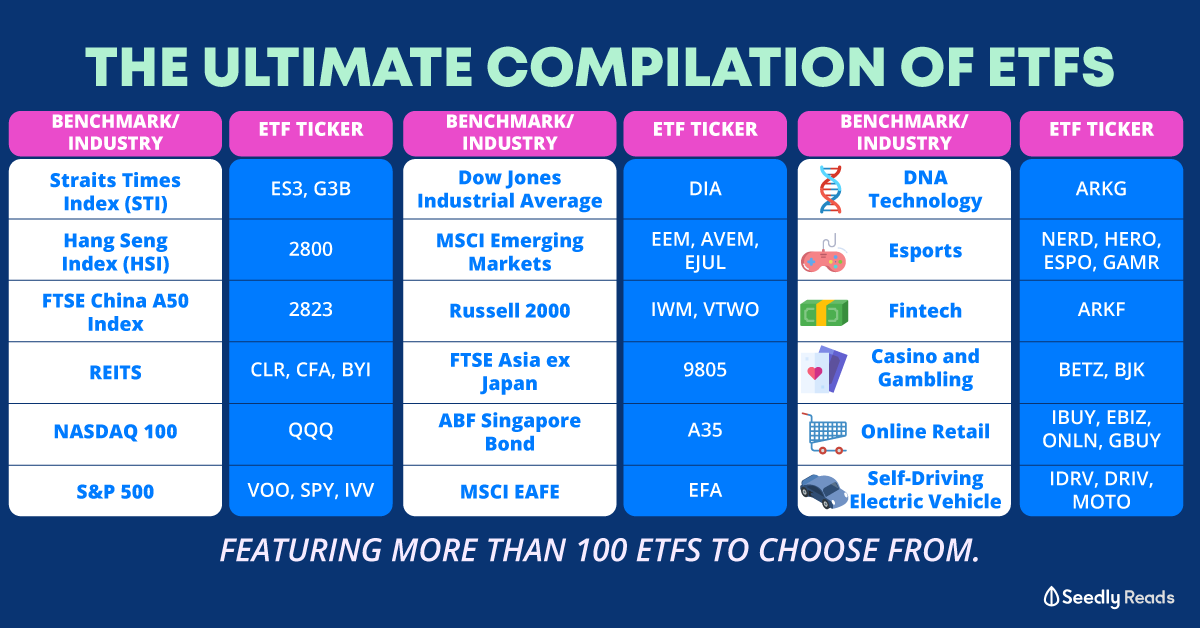Advertisement
What is the difference between ETF funds, trust funds and mutual funds?
Which will be advisable for a beginner?
3
Discussion (3)
Learn how to style your text
Elijah Lee
19 Nov 2019
Senior Financial Services Manager at Phillip Securities (Jurong East)
Reply
Save
Hariz Arthur Maloy
19 Nov 2019
Independent Financial Advisor at Promiseland Independent
ETFs, Mutual Funds (called Unit Trusts in Singapore) are all tools that pull monies together and is invested by a fund manager into a particular strategy or asset class.
The differences are:
ETFs are closed ended funds that trade on a stock exchange. This means you're buying holdings of this pool of monies from someone else who owns the share to the fund. This is traded within the day.
While Unit Trusts and Mutual Funds are open ended funds. And to buy into them, you have to buy directly from the fund manager who creates a unit of holding to participate in the investment holdings. This is dealt at the end of the day only.
Both ETFs and Mutual Funds can be either actively or passively managed.
Passive management would mean replicating market like returns by tracking an index without input by the fund manager.
Active management is benchmarking against an index but the fund manager makes active decisions to choose the underlying security to purchase with the intention to beat the index.
Reply
Save
Kelly Trinh
19 Nov 2019
Backoffice technical at financial services firm
Mutual funds / Trust funds are basically different names for same thing - investment vehicles where ...
Read 1 other comments with a Seedly account
You will also enjoy exclusive benefits and get access to members only features.
Sign up or login with an email here
Write your thoughts
Related Articles
Related Posts
Related Posts
Advertisement









Both fall under the category of collective investment schemes (CIS).
Basically, they pool investor's money together and invest in a particular asset class(es), in a defined region, under a mandate, in a particular sector, or any combination thereof. Overseeing the fund is the fund manager, and a trustee is appointed to safeguard investor's interest.
For an ETF, these are traded on an exchange and prices will vary by the second. You can only buy or sell them during trading hours, and there is usually a transactional charge called a brokerage you have to pay. The fund manager will usually buy and hold as their strategy/goal is to replicate index performance. There can be direct replication of the index, sampling replication, or even using financial instruments to replicate index returns. Hence, do not expect your ETFs to out perform the market. Due to a buy and hold strategy, the management costs are not high (they shouldn't be)
For UTs, you are buying and selling them to a fund house. Liquidity is provided by the fund house, and thus you will always be able to buy and sell. The pricing of the UT is valued once a day on a forward pricing basis, which means that the fund manager will calculate the price for the day and release it later. Fund managers aim to beat the reference index, some do and some don't. Expect that due to the active management (they have to do company visits and such), their holdings don't follow the index very closely, and their management fees are higher due to the extra work needed. But if the fund beats the index, the manager is worth his fee. Depending on where you buy from, there can be no transactional charges.